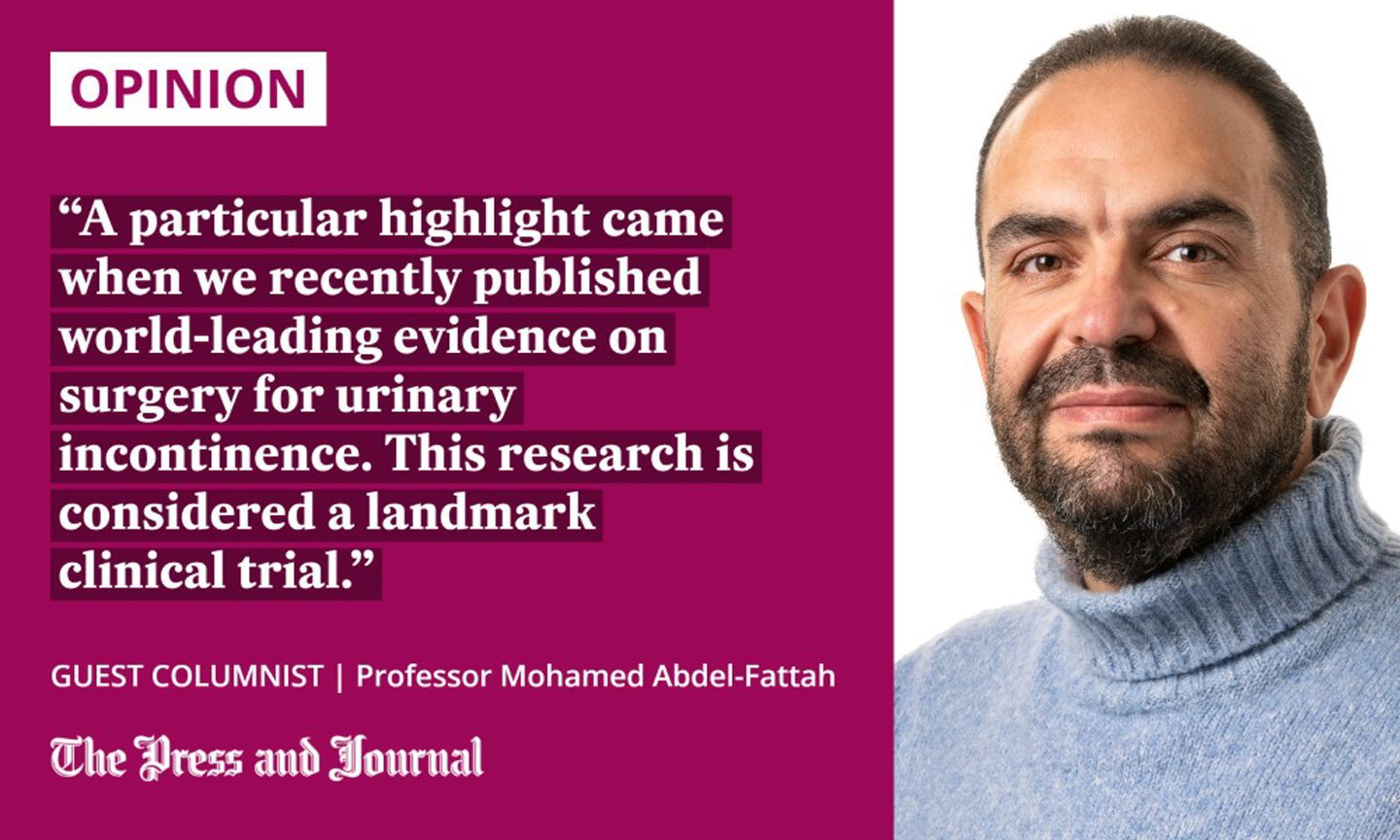Aberdeen Centre for Women’s Health Research’s aim is to improve the experiences of women through all stages of life, writes Professor Mohamed Abdel-Fattah.
Aberdeen Centre for Women’s Health Research was established in 2018, building on 70 years of excellence in women’s health research from the University of Aberdeen.
Our mission at the Centre is to improve the experiences of women through all stages of life, from painful periods to prolapse, fertility to childbirth, pregnancy loss to contraception, safe abortion care to cancer.
Earlier this month – on International Women’s Day (March 8) – we had a double celebration, blowing out the candles on our birthday cake to mark our fifth anniversary as a leading research centre in women’s health right here in Aberdeen, and celebrating and recognising the inspirational women who have motivated and encouraged our work here, and continue to do so.

Our first five years have not been easy. Like all research facilities, we had to navigate the complexities around continuing research during Brexit and then throughout the Covid pandemic. However, we have enjoyed many successes during our relatively short tenure, which include obtaining funding from several prestigious bodies in the UK, including the National Institute for Health and Care Research, the Medical Research Council, and charity Tommy’s.
This funding has allowed us to start new clinical research into shared decision-making for childbirth, pregnancy loss, assessing treatments for endometriosis, and evaluating the long-term outcomes of surgery for urinary incontinence.
Groundbreaking success and community collaboration
A particular highlight came when we recently published world-leading evidence on surgery for urinary incontinence. This research is considered a landmark clinical trial, resulting in changes in international guidelines and, ultimately, providing women and the NHS with robust information on the most effective and safe surgery in this field.
We also published a pivotal study on the impact of the HPV vaccination in preventing cervical disease in Scotland.
Despite Covid restrictions, we have made new research collaborations across the world, in Australia, Jordan, Finland, Malta, the Middle East and Canada, as well as in medical specialities closer to home, including cardiology, urology, dentistry and haematology. We were also successful in completing large, UK-wide clinical trials, despite the challenges posed by the pandemic.
We are emphatically grateful to the people of Aberdeen, who have played a significant part in our successes. A number of local patient and public groups have contributed to the design and delivery of many research projects here at the Centre, and we couldn’t have achieved what we have without them.
Next year, we will move with our NHS colleagues into the new Baird Family Hospital, which has been designed to bring all of our clinical services within one building. We look forward to having this new space in the heart of a busy hospital in order to bring healthcare and research closer together.
Professor Mohamed Abdel-Fattah is co-director of Aberdeen Centre for Women’s Health Research

Conversation